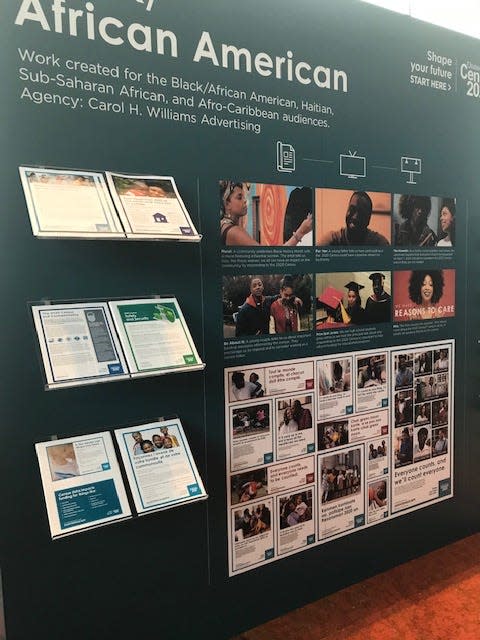What is the census and how is it used? Here's what you need to know about the 2020 census
WASHINGTON – By now you probably have been bombarded by ads urging you to participate in the 2020 Census. Millions are expected to do just that – fill out forms, phone into call centers or tap keyboards to answer questions online.
But millions will never respond. Census workers, community groups and local officials are ramping up efforts to get people living in the United States to participate in the decennial count.
"Every person in America deserves to be counted,'' said Census Director Steven Dillingham.
People of color and the census: How groups are 'pulling out all the stops' to get an accurate count
What is the census?
The Census is a national count of people living in the country. It’s done every 10 years. The government spends millions to gather the information, including promoting the survey and hiring thousands to knock on doors to try to complete the count.
The count is required under the Constitution and people are required under federal law to respond.The information is confidential.
When did the 2020 census begin and end?
The 2020 count started Jan. 21 in a remote community in Alaska. By mid-March "invitations" should be sent to every household and by April 1, Census Day, forms should be entered according to where you live as of April 1.
Here are some key dates:
Jan. 21 – The first person is counted in remote Alaska
March 12 – People will start receiving Census information about how to respond and will be "invited' to participate either online or by paper questionnaire.
March 26 -- Reminder postcards should begin arriving at households
April 1 – It's Census Day, the national promotion
April 8 - Reminder letters and forms for those who haven't responded start arriving
April 9 - Census workers start going out in the field to contact people who didn't respond
July 31 – The last day to respond for most people
How is the census used?
Much is at stake for local communities. The Census count is used to distribute more than $860 billion in federal funding for schools, health systems and infrastructure, including roads and bridges.
The count is also important in determining the number of members to represent a state in the U.S. House of Representatives, which could impact a delegation’s clout on Capitol Hill.
Will the census ask about citizenship?
The survey asks some basic questions, including how many people are living in your household as of April 1. It also asks about race, sex and age for each member of the household.
One thing that won’t be on the form is a question about citizenship. The Trump administration unsuccessfully tried to add it. Civil rights groups argued it would deter some people from participating in the count.
What’s new about the census?
For the first time you can complete the form online, by phone and by mail.
This count will be the first to include an option to check same-sex marriage.
And with new technology, the Census Bureau will be able to better track where responses have been slow and dispatch resources to boost those numbers.
What are some concerns about the 2020 census?
Some groups have raised concerns about responding online saying some people, particularly in rural communities who have limited or no internet service.
They're also worried about cyber security threats.
And opponents of adding the citizenship question say even though it will not be on the form some people may still be afraid to respond.
Others worry many communities still won't be accurately counted. The national NAACP and Prince George’s County in Maryland filed a lawsuit charging that the Census Bureau hasn’t done enough to address undercount issues and, in fact, has taken steps that could hurt that effort, such as reducing the number of field offices and counters.
When will the census contact me? What should I expect?
Ads about the census can be seen and heard across the country. By mid March, some people will be asked to start responding by phone or online. Not everyone will get that invitation at the same time. If you don’t get one or if you don't respond, you will get a paper questionnaire. And if you don’t fill that out, a Census worker will later show up at your door and ask you to complete the form.

This article originally appeared on USA TODAY: Census 2020 guide, questions: What is it? When does census start, end?

